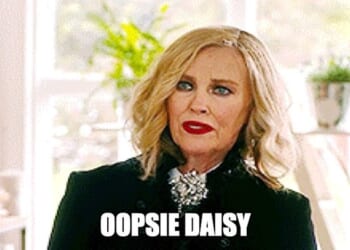The number of UK adults struggling with adverse credit has reached an all-time high. Research from Financial Reporter shows that 8.4 million people (16%) have experienced adverse credit in the past three years.
This results in more consumers finding it difficult to borrow money, whether through loans, credit cards, or mortgages. The rise in poor credit scores reflects growing financial pressure across the country—but what exactly is driving this trend?
Adverse credit occurs when someone has a history of missed payments, defaults, or high levels of debt. These issues lower credit scores, making it harder to access financial products. As the cost of living continues to rise, more people are falling behind on their payments, pushing the number of adverse credit cases to record levels.
What is Causing the Increase?
Several issues are contributing to this rise. The ongoing cost-of-living crisis is one of the main reasons. With energy bills, food prices, and general expenses increasing, many households are struggling to keep up. This financial strain has led to missed payments and growing debt, both of which negatively affect credit scores.
Inflation has also played a major role. As everyday items become more expensive, people are forced to rely more on credit to cover essential costs. Over time, this can lead to a build-up of debt and missed repayments.
Economic uncertainty adds to the problem. Job insecurity and inconsistent incomes make it harder for people to plan and stick to budgets. A recent survey found that 25% of UK adults have missed at least one payment in the past year—a clear sign that the issue is widespread and growing.
What Does This Mean for Borrowers?
Having adverse credit can limit access to financial products. Those with poor credit scores often face higher interest rates, stricter lending conditions, or even rejection from lenders altogether. Some financial institutions are now tightening their criteria, which makes it even more difficult for those with bad credit to secure the help they need.
The mortgage market is also being affected. Recent data shows that mortgage approval rates for individuals with poor credit have dropped by 15%. This suggests that lenders are becoming more cautious, making it harder for many people to get on the property ladder or refinance their homes.
Expert Comment
We spoke to four experts in the consumer finance space to hear thoughts:
Dan Pheabs of finance startups, Pheabs commented:
“This rise in adverse credit amongst Britons has been the result of years of government policies that have increased daily living costs and reduced the accessibility to mainstream finance. Consumers are facing the aftermath of years of neglect, coronavirus-led economic decisions and changes in government power.”
“Britons are being hit in every sense, from higher mortgage rates to increases in council tax, water, electricity and 20% VAT on private schools if they can afford it. You can physically feel the crunch with the consumer in the middle.”
“As banks are starting to offer mortgage rates below 4%, perhaps this is a sign of an economic shift and change that could help the UK economy and consumer credit to recover.”
A Spokesperson for One Stop Money Shop said:
“This is a difficult time for Britons and the general cost of living has really skyrocketed in the last few decades. There are small things that really add up. It used to be enough to just own a TV, but now it is a necessity to have Sky, Netflix, Broadband and Amazon Prime too – as well as a gym membership. Basic necessities now cost several thousands.”
“In terms of accessing credit, whilst generally very restrictive from banks and mainstream lenders, there are some alternative options to access funds. For instance, working with credit unions is very underrated as a source of finance, as well as introductory offers from credit cards – and there are various grants and schemes available for home improvements.”
Bruno Velazquez of SuperDinero commented:
“It is important that we have more open conversations about credit. Borrowing money from family and friends is still one of the most powerful ways to stay on top of debts and is interest-free and will not impact your credit score.”
“We should also be promoting more finance education, where lenders can give consumers lots of different options and instructions to help pay off their bills, rather than just charging high fees and letting their credit scores go to pieces.”
Gavin Cooper of consumer champion, Claims Bible added:
“Adverse credit is typically the result of missed payments on things like credit cards and loans and revolving credit that is not paid off and causes a spiral of debt.”
“There are ways to stay on top of your bills without fully paying them off, whether it is using payment holidays, moving credit card debt over to balance transfer cards or making minimum payments.”
“These are simple methods that are designed to give consumers more breathing space and allow them to delay repayments at the lowest rates whilst keeping their credit scores intact.”
Is Recovery Possible?
Although the situation is challenging, it’s not without hope. There are steps people can take to rebuild their credit and improve their financial situation. Paying off debts on time, keeping credit card balances low, and avoiding new borrowing unless absolutely necessary are all good starting points.
It’s also important to check credit reports regularly. Mistakes on a report can lower a score unfairly, and correcting them can lead to immediate improvements. For those feeling overwhelmed, speaking to a financial advisor or contacting a debt advice service can provide valuable support and a clearer path forward.
As financial pressure continues across the UK, addressing adverse credit early can make a big difference. With careful planning and the right advice, many borrowers can recover and rebuild their financial future.




![‘It’s a Recipe for a Hundred Years of National Dominance’: Stephen Miller [WATCH]](https://www.right2024.com/wp-content/uploads/2025/05/Stephen-Miller-Completely-Obliterates-CNN-Host-Over-Her-Illegal-Immigration-350x250.jpg)

![Trump Posts Hilarious Pope Meme, Leftists Immediately Melt Down [WATCH]](https://www.right2024.com/wp-content/uploads/2025/05/Trump-Posts-Hilarious-Pope-Meme-Leftists-Immediately-Melt-Down-WATCH-350x250.jpg)


![Mother Breaks Silence After Three Daughters Killed During Father’s Custody Visit, Memorial Held [WATCH]](https://www.right2024.com/wp-content/uploads/2025/06/Mother-Breaks-Silence-After-Three-Daughters-Killed-During-Fathers-Custody-350x250.jpg)






